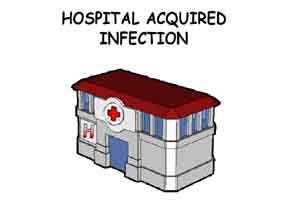- Home
- Medical news & Guidelines
- Anesthesiology
- Cardiology and CTVS
- Critical Care
- Dentistry
- Dermatology
- Diabetes and Endocrinology
- ENT
- Gastroenterology
- Medicine
- Nephrology
- Neurology
- Obstretics-Gynaecology
- Oncology
- Ophthalmology
- Orthopaedics
- Pediatrics-Neonatology
- Psychiatry
- Pulmonology
- Radiology
- Surgery
- Urology
- Laboratory Medicine
- Diet
- Nursing
- Paramedical
- Physiotherapy
- Health news
- Fact Check
- Bone Health Fact Check
- Brain Health Fact Check
- Cancer Related Fact Check
- Child Care Fact Check
- Dental and oral health fact check
- Diabetes and metabolic health fact check
- Diet and Nutrition Fact Check
- Eye and ENT Care Fact Check
- Fitness fact check
- Gut health fact check
- Heart health fact check
- Kidney health fact check
- Medical education fact check
- Men's health fact check
- Respiratory fact check
- Skin and hair care fact check
- Vaccine and Immunization fact check
- Women's health fact check
- AYUSH
- State News
- Andaman and Nicobar Islands
- Andhra Pradesh
- Arunachal Pradesh
- Assam
- Bihar
- Chandigarh
- Chattisgarh
- Dadra and Nagar Haveli
- Daman and Diu
- Delhi
- Goa
- Gujarat
- Haryana
- Himachal Pradesh
- Jammu & Kashmir
- Jharkhand
- Karnataka
- Kerala
- Ladakh
- Lakshadweep
- Madhya Pradesh
- Maharashtra
- Manipur
- Meghalaya
- Mizoram
- Nagaland
- Odisha
- Puducherry
- Punjab
- Rajasthan
- Sikkim
- Tamil Nadu
- Telangana
- Tripura
- Uttar Pradesh
- Uttrakhand
- West Bengal
- Medical Education
- Industry
Health ministry issues guidelines to control hospital infections

The health ministry has issued some new guidelines to healthcare institutions to monitor the hospital acquired infection, and therefore, prevent transmission of infection.
This step is directed towards controlling the vulnerable situation of almost 40% patients admitted in public hospitals acquiring life threatening infections.
On the other hand, the experts have comments that chances of acquiring infections is around 20-25%, though less than the public hospitals.
The Indian Council of Medical Research (ICMR) has broadly included the basic principles of infection control, role of health care workers, bio-waste management as a part of the new set of guidelines. An elaborate step to control infection effectively is also a part of this initiative.
ICMR has also included training of health care workers, protection of health care workers, identification of hazards and minimising risks, aseptic techniques, use of single use device, reprocessing of instruments and equipment, antibiotic usage, management of blood and body fluid exposure as crucial factors for the implementation of the infection control programme.
As reported by TOI, highlighting that good infection control measures can significantly reduce patient morbidity and mortality in hospitals and has also been proven cost-effective, ICMR Director General Soumya Swaminathan said, "The infection control policies and procedures, when consistently applied and integrated into all systems and processes result in significantly reduced infection rates thus reducing the morbidity and mortality due to hospital acquired infections".
Apart from basic standards, the ICMR document also elaborates on responsibilities of healthcare facilities, risks associated with them and need to vaccinate healthcare workers etc.
This step is directed towards controlling the vulnerable situation of almost 40% patients admitted in public hospitals acquiring life threatening infections.
On the other hand, the experts have comments that chances of acquiring infections is around 20-25%, though less than the public hospitals.
The Indian Council of Medical Research (ICMR) has broadly included the basic principles of infection control, role of health care workers, bio-waste management as a part of the new set of guidelines. An elaborate step to control infection effectively is also a part of this initiative.
ICMR has also included training of health care workers, protection of health care workers, identification of hazards and minimising risks, aseptic techniques, use of single use device, reprocessing of instruments and equipment, antibiotic usage, management of blood and body fluid exposure as crucial factors for the implementation of the infection control programme.
As reported by TOI, highlighting that good infection control measures can significantly reduce patient morbidity and mortality in hospitals and has also been proven cost-effective, ICMR Director General Soumya Swaminathan said, "The infection control policies and procedures, when consistently applied and integrated into all systems and processes result in significantly reduced infection rates thus reducing the morbidity and mortality due to hospital acquired infections".
Apart from basic standards, the ICMR document also elaborates on responsibilities of healthcare facilities, risks associated with them and need to vaccinate healthcare workers etc.
bio-waste managementguidelines for healthcare institutionshealth care workershealth ministryhospital acquired infectionICMR Director General Soumya SwaminathanIndian Council of Medical Research (ICMR)infection control programmeprevent transmission of infection
Next Story


